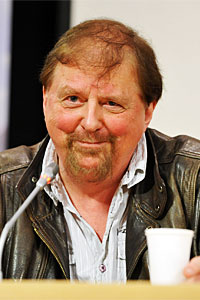Here's how to sound wise when writing a story about mass killings and gun control. Last week saw two such massacres in Serbia (eight deaths and nine deaths, respectively) and only one in the United States (eight killed in a mall in Allen, Texas).
There was another mass killing in Texas on Saturday in the border city of Brownsville, but it was by car, so it doesn't count. Never mind. We still have enough to work with.
Start with striking quotes from the relevant authorities. "We walked around like zombies for 24 hours, not believing what has happened and looking for reasons," said Serbian President Aleksandar Vucic, who began his political career as a far-right Serbian nationalist during the Yugoslav civil wars.
Those wars were horrific, but they ended thirty years ago. Mr Vucic's shock was real, because the last mass killing in Serbia was ten years ago, and because one of the mass murderers was only 13 years old.
By contrast, the official response in Texas was routine, almost perfunctory. Texas Governor Greg Abbott called the shooting an "unspeakable tragedy", but proposed no steps to prevent the next one. The local mayor, Ken Fulk, said that "Allen is a proud and safe city, which makes today's senseless act of violence even more shocking."
Really? There are "safe cities" in Texas?
Having established Americans as habitual offenders and Serbs as shocked innocents, we now contrast the sane and serious Serbian proposals for stopping more gun massacres with the Americans' fatalistic shrug. President Vucic is promising to do at once all the things that US gun-control campaigners have failed to get on the political agenda for decades.
In a nationwide TV broadcast, Mr Vucic announced "an almost complete disarming" of the country: "We will conduct a revision of all people who possess firearms, around 400,000 of them. [Serbia's total population is about 6.6 million.] After these checks, there will be no more than 30,000 to 40,000 weapons legally owned."
Penalties for illegal possession of firearms will be doubled. The remaining licensed gun owners will face frequent psychiatric tests and random drug tests. So much for the permit-holders and their legal weapons.
However, Serbia is also awash with military weapons that soldiers took home with them after the Balkan wars of the 1990s -- maybe a million of them. There will be a one-month amnesty to turn them in, but what will happen to those who don't? "If they do not hand them over, we will find them, and the consequences will be dire for them," Mr Vucic said.
What a man! Why doesn't America have somebody like Mr Vucic to end the gun slaughter? (American gun deaths are running at around 50,000 a year, although half of them are suicides.) What the United States needs is a hero to just sweep the guns aside! Etc, etc.
The opinion piece practically writes itself. Indeed, ten thousand versions of it are being written by ChatGPT right now. But it's all nonsense.
Mr Vucic is just saying what he thinks people want to hear right now. When he worked for the monster Slobodan Milosevic and Serbs wanted to hear that the massacres their own people were committing in Bosnia, Croatia and Kosovo were justified, that's what he told them. His own history shows that his words and his deeds rarely match.
There will be no mass disarmament in Serbia: that's not how Mr Vucic plans to spend his political capital. But while Serbs come second in the world for gun ownership (58 guns per hundred residents, compared to 120 per hundred in the United States), they only kill a quarter as many people per capita with guns. The Serbs' problem is not really all that bad.
America's problem is very bad, but it's mostly cultural and political. Those who own guns own lots of them, but only three out of ten American adults own a gun at all. Gun ownership is almost twice as high in the southern states (the old Confederacy) as it is in the urban northeast (where the gun murder rate is almost down at the Canadian level).
And while Americans (or at least some Americans) obsess about the high gun murder rate, they ignore the fact that most Latin American countries, from Mexico to Brazil, have even higher rates. So do many English-speaking islands in the Caribbean. Is there some common factor, current or historical, that drives up gun ownership rates in the Americas?
And why don't the Latin Americans have much by the way of gun massacres by random crazies, even though they have more guns around? We know far less about the relationship between guns and murder than we think we do, and a little humility would go a long way on both sides.
